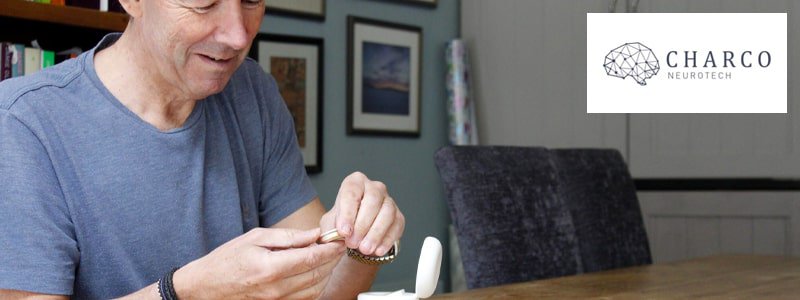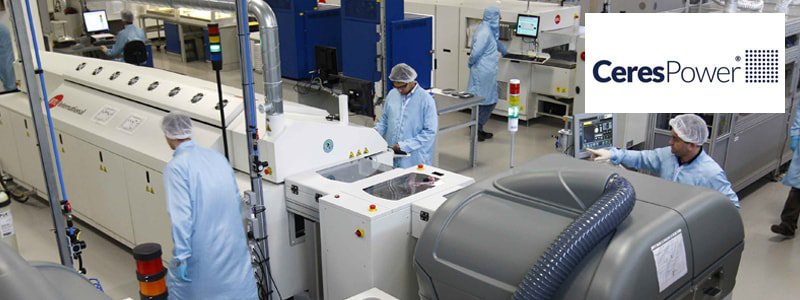Imperial College Enterprise Fund III
Offer closed
As at 28 Jun 2024, Imperial College Enterprise Fund III is closed.
Please see our other EIS offers that are currently open.
Alternatively, to be notified when the fund next opens please register your interest below.
Register your interest – Imperial College Enterprise Fund III
Imperial College is one of the world’s top universities – ranked eighth in the Times 2024 World University Rankings. It was also, in 1986, among the first UK universities to launch its own dedicated technology transfer office, Imperial College Innovations, to help spinout companies turn academic research and discoveries into commercial businesses.
Since then, hundreds of startups have been formed at Imperial College. There are over 285 Imperial startups still active which over the last five years alone have attracted close to £500 million in external capital and supported the creation of over 1,300 new jobs.
Imperial College partnered with spinout specialist Parkwalk Advisors to launch its first dedicated EIS fund in 2020, and has since raised £3.5 million across two funds, investing £2.5 million in nine companies. Wealth Club is the only non-advised broker to offer the new Imperial College Enterprise Fund III.
- Target return is unspecified
- Estimated holding period of four to eight years, not guaranteed
- Target portfolio size of at least five companies, with expected deployment in 18 to 24 months
Important: The information on this website is for experienced investors. It is not advice nor a research or personal recommendation to invest. If you’re unsure, please seek advice. Investments are for the long term. They are high risk and illiquid and can fall as well as rise in value, so you could get back less than you invest.
The manager
The fund is managed by Parkwalk Advisors (‘Parkwalk’) and the Head of Startup Investment Funds at Imperial College will act as the Investment Committee Advisor.
Before your subscription is invested into shares, the cash will be held by the custodian, Mainspring Nominees Limited. Shares will be held by the nominee, MNL (Parkwalk) Nominees Limited.
Parkwalk
Parkwalk Advisors is a specialist university spinout investor with £500 million assets under management. It was founded in 2009 and in 2017 acquired by IP Group, a leading intellectual property commercialisation company with net assets of £1.3 billion (June 2023) and a market capitalisation of £602 million (December 2023). In 2023, Parkwalk was named as the top investor in university spinouts by Beauhurst.
IP Group has also acquired Touchstone Innovations, which was set up to invest in promising technology companies spun out of Imperial College and University College London.
Imperial College Innovations
Imperial College can trace its roots back to 1823 and is one of the world’s top-rated universities, ranking highly in research and innovation in particular.
Imperial College founded its own technology transfer office in 1986 to help convert its most promising research into viable commercial opportunities. Imperial Innovations was originally a department within the university before becoming a wholly owned subsidiary. In 2006 the company was admitted to AIM and broadened its investment scope to include institutes within the ‘Golden Triangle’, an area comprising London, Oxford, and Cambridge. To better reflect this change in strategy, it rebranded as Touchstone Innovations. Touchstone was acquired by IP Group, which retained the investments.
The Technology Transfer Office (TTO) returned to the College in 2019 and was named Imperial College Innovations (ICI). Parkwalk is working with the TTO on this fund.
Dr Brijesh Roy, Head of Startup Investment Funds at Imperial College, will act as Investment Committee Advisor. He joined Imperial in 2020 specifically to help the funds access Imperial’s start-up ecosystem and identify suitable companies for investment. He previously led partnerships with eight regional universities at Mercia Technologies, and the commercialisation of Imperial and Oxford University spinout Nightstar Therapeutics.
Meet the manager: Alun Williams, investment director at Parkwalk
Investment strategy
The fund will follow a similar investment strategy as Parkwalk’s other university funds.
It will invest in at least five early-stage, high-growth, research intensive companies with strong connections to Imperial College London. These could include spinouts based directly on academic research, deep science businesses developed by students or companies emerging from the wider Imperial ecosystem. Companies may cover a wide range of sectors, including areas of particular strength at Imperial such as healthcare, renewable energy, decarbonisation, clean water and nutrition.
The fund expects to benefit from the considerable investment the college has made in fostering an entrepreneurial community in recent years. The College’s dedicated startup investments team reviews around 100 opportunities a year, advised by the Imperial College Startup Investment Committee – made up of senior academics, venture investors and technology executives.
This committee, part of ICI, will source, assess and put forward investment opportunities for the fund, drawing on its wide network of staff, students and alumni. These are then assessed by the Parkwalk Investment Committee.
Once a company has received investment, it will have access to ICI’s extensive support service. Founders will be assisted with securing IP protection, identifying sources of follow-on funding and have the benefit of numerous facilities and programmes Imperial has introduced to support young companies.
The manager has not specified a target return.
Portfolio
To date, the Imperial College Enterprise Funds have invested in nine companies across eleven funding rounds. Five are valued broadly at cost, two are held above cost and one below. One company, Bonnet – detailed below, has been exited at a loss. While the portfolio is still limited, both Parkwalk and ICI have a history of investing in spinout opportunities and having previously co-invested through Parkwalk’s Opportunity EIS Fund.
The fund will target a portfolio of at least 5 companies, with deployment expected to take 18 to 24 months, not guaranteed. The portfolio will consider startups and later-stage follow-on investments, with potential for EIS and/or SEIS relief. Although Parkwalk will seek to create a varied portfolio, it will not restrict the amount that can be invested into any one investment or type of investment.
Below are examples of investments from previous iterations of the Imperial College Enterprise Fund. They are outlined to give a flavour of the types of companies you might expect but are unlikely to be part of a new investor's portfolio.
 Osstec
Osstec
Around 1.3 million people around the world receive a knee replacement every year, and more and more of those patients are young – under the age of 65.
For those younger patients, the goal is to not just to reduce pain, but to also support a return to an active life. Unfortunately, 35% of knee implants in younger patients will eventually fail, usually because the implant becomes detached from the bone.
Osstec has developed 3D printed titanium implants that have similar properties to bones, allowing easier fusion. The team has found that this type of implant fails 50% less. The company currently has five patents and a team of seven employees as it looks to take its products into operating theatres.
The Imperial College Enterprise Fund invested in April 2023 as part of a £1.2 million round.
 Charco Neurotech
Charco Neurotech
Named after famed neurologist Jean-Martin Charcot, Charco Neurotech has designed a wearable device that helps reduce the symptoms of Parkinson’s disease.
Its founder, Lucy Jung, began the project as part of her Design Engineering Master's degree. She was joined by her co-founder, Dr Floyd Pierres, and together they began researching the benefits of stimulation for Parkinson’s therapy.
In 2019, along with participants from Parkinson’s UK, the company was able to develop its first prototype, CUE1. The device, which is roughly the size of a pebble, works by delivering gentle vibrations to the peripheral nervous system. Pilot tests reported an average improvement of 16% in movement tasks, easing the typical stiffness and slowness symptoms associated with Parkinson’s. The company has also developed a companion app that sends medicine reminders and tracks symptom progression and quality of life measures. The CUE1 is now in beta testing, with over 3,000 people using it daily.
The fund has invested £205,000 into the company to support the development of CUE1 as part of a £500,000 seed round. In addition to this, the company has also secured more than £200,000 in grants, prizes, and invested funds raised by the Royal College of Art.
 Ceres Power (example of previous exit)
Ceres Power (example of previous exit)
Ceres Power was a co-investment between ICI and Parkwalk. it has been included as an exit example because the investment was made using broadly the same mandate as this fund.
Ceres Power spun out of Imperial College over 19 years ago and has subsequently gone on to become the UK’s most valuable cleantech company, valued at over £600 million (January 2020).
The company has developed fuel cells, a type of device that produces electricity from substances such as natural gas and hydrogen, with relatively low or zero carbon emissions. Where Ceres differentiates itself is its unique combination of advanced materials which provides high levels of efficiency at a lower cost. Furthermore, the flexibility of the design means the cells can be used industrially, domestically and within vehicles.
Parkwalk first invested in October 2016 as part of a £20 million funding round to help the company make substantial commercial and technical progress. In just over three years, the company was exited generating a return of 2.4x for Parkwalk investors (not including initial tax relief). Past performance is not a guide to the future.
Bonnet (example of previous failure)
As is the nature of investing in smaller companies, failures tend to come before successes. Bonnet is one such example.
Bonnet was developing a platform for electric car charging point operators and a mobile application for EV users to provide reliable, interoperable, and cheap access to a wide range of electric vehicle chargers, as well as real-time data on charger availability and functionality.
The app achieved significant reach within the UK, granting access to over 80% of the UK’s charge points, and following investment from Google Ventures it was operating in 12 countries across Europe while serving 150,000 drivers.
However, negotiations for further financing to continue expanding its customer base across Europe fell through at a late stage. As a result of this, and the difficult funding environment, the shareholders decided to seek an exit through M&A – with the eventual sale to Ovo Energy in November 2023 delivering returns below cost for the Imperial College Enterprise Funds.
Performance
This is the third iteration of the Imperial College Enterprise Fund.
The previous two funds invested £2.5 million into nine companies across 11 investment rounds. The funds have exited one holding, below cost, and the remaining investments are currently valued at £2.7 million. Past performance is not a guide to the future.
The chart below shows the average performance of the total subscribed into the funds in each full tax year from 2013/14 (or from when the current strategy was adopted if later) to 2022/23. The chart shows the performance of Imperial College Innovation Fund I in the 2020/21 tax year and Imperial College Enterprise Fund II in the 2021/22 tax year. The chart is based on the latest valuations provided by the manager, expressed on a £100 invested basis. Please note, individual investor portfolios’ performance will deviate from the average.
Performance per £100 invested in each tax year
Source: Parkwalk, as at 01 January 2024. The chart shows realised returns (where share proceeds have been returned to investors as cash) and unrealised returns (where cash has not yet been returned and the value of the investments is based on the manager’s own valuation methodology). There is no ready market for unlisted shares. The figures shown are net of all fees and do not include any income tax relief or loss relief.
Risks – important
This, like all investments available through Wealth Club, is only for experienced investors happy to make their own investment decisions without advice.
EIS/SEIS investments are high-risk and should only form part of a balanced portfolio. As must be expected with early-stage investments, some or even all of the companies in the portfolio could fail: the fewer the companies included in the portfolio, the higher the risk of loss if things don’t go to plan. You should not invest money you cannot afford to lose.
There is no ready market for unlisted EIS/SEIS shares: they are illiquid and hard to sell and value. There will need to be an exit for you to receive a realised return on your investment. Exits are likely to take considerably longer than the three-year minimum holding period; equally, an exit within three years could impact tax relief.
To claim tax relief, you will need EIS3/SEIS3 certificates, normally issued once shares have been allotted. This can take several months: please check the deployment timescales carefully. Tax reliefs depend on the portfolio companies maintaining their EIS/SEIS-qualifying status. Remember, tax rules can change and benefits depend on circumstances.
Before you invest, please carefully read the Risks and Commitments and the offer documents to ensure you fully understand the risks.
Charges
A summary of the main charges and savings is shown below. Some of these will be payable by the investor, whilst others by the investee companies. The investment may have additional charges and expenses: please see the provider documents, including the Key Information Document, for more details.
| Investor charges | |
|---|---|
| Full initial charge | 5% |
| Wealth Club initial saving | — |
| Net initial charge through Wealth Club | 5% | Annual management charge | 1.5% |
| Administration charge | 0.25% |
| Dealing charge | 0.20% |
| Performance fee | 20% | Investee company charges |
| Initial charge | — | Annual charge | — |
More detail on the charges
Our view
This is the third EIS fund to be launched by the collaboration between Parkwalk Advisors and Imperial College Innovations. The fund provides investors with the opportunity to invest in spinouts from one of the world’s leading research universities, with a portfolio selected and managed by the UK’s top university spinout investor.
Although this fund series is comparatively young, Parkwalk has already successfully rolled out this strategy to three other world-leading universities (Oxford, Cambridge and Bristol) and the first two Imperial funds have been successfully deployed. Imperial College Innovations and the College’s wider network add substantial resources and expertise.
The prospect of having preferred access to deal flow from Imperial College might appeal to investors looking to complement a wider investment portfolio, where gaining exposure to university spinouts can be challenging.
Wealth Club aims to make it easier for experienced investors to find information on – and apply for – investments. You should base your investment decision on the offer documents and ensure you have read and fully understand them before investing. The information on this webpage is a marketing communication. It is not advice or a personal or research recommendation to buy any of the investments mentioned, nor does it include any opinion as to the present or future value or price of these investments. It does not satisfy legal requirements promoting investment research independence and is thus not subject to prohibitions on dealing ahead of its dissemination.
The details
- Type
- Fund
- Sector
- University spinouts
- Target return
- -
- Funds raised / sought
- -
- Minimum investment
- -
- Deadline
- CLOSED
